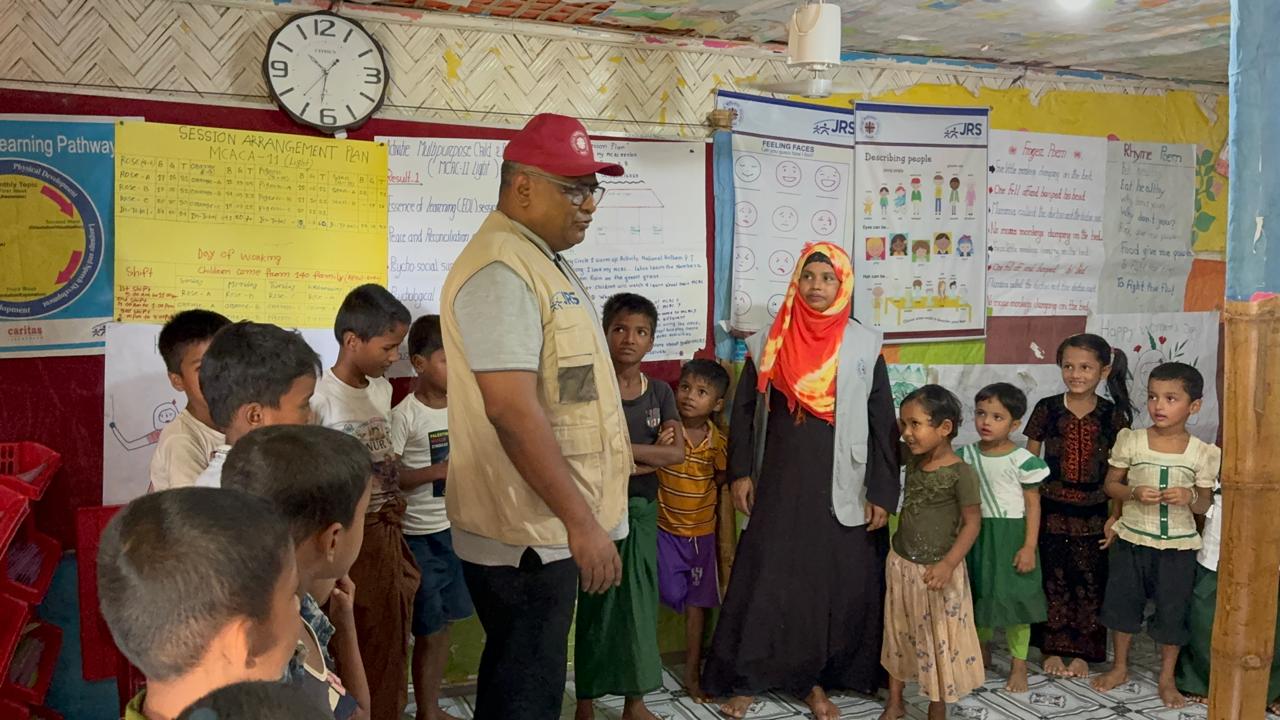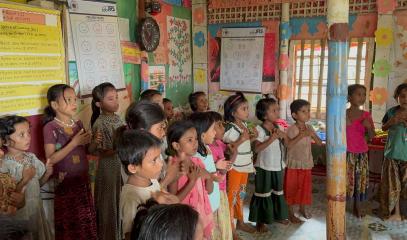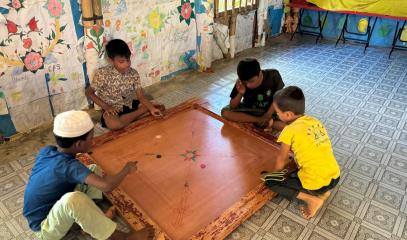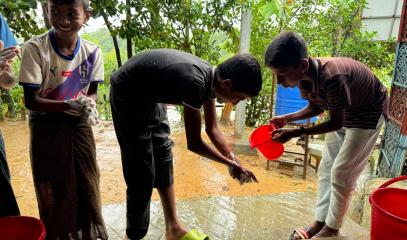Cox's Bazar, Fr. Gomes: My mission as ‘Good Samaritan’ among Rohingya refugees
Seven years after the great flight of hundreds of thousands of members of the Muslim minority from Myanmar, the situation in Bangladesh's reception centres is still an emergency. The account of a Jesuit, who has been involved in aid and shelter work for years. Dhaka has limited resources, but we need stability and peace in former Burma before repatriating them.
Cox's Bazar (AsiaNews) - ‘The situation is more or less the same. Violence in the camps continues, with incidents of theft, vandalism, murder and abduction occurring as before’ and “there are no links to the protest movement”.
It has now been seven years since the tragic 25 August 2017, when more than 700,000 Rohingya men, women and children hastily fled Myanmar seeking shelter in Bangladesh to escape the brutality of the Burmese army.
However, in the words of Jesuit Fr Jerry Gomes, head of the Jesuit Refugee Service (JRS) programmes in the South Asian country, a picture emerges that is still critical for the Muslim minority from the western Rakhine State. Initial hopes for a solution, explains the 56-year-old priest, have been dashed in a picture of increasing complexity. And violence.
Since April 2020 Fr. Gomes is in charge of programmes in Bangladesh of JRS, the international Catholic organisation supporting refugees founded in 1980 and now present in 58 countries.
In the Asian country he has been active for the past seven years in Cox's Bazar, where he works alongside the local Caritas to bring help and comfort to the Rohingya refugees from Myanmar, particularly children and adolescents, also taking care of their mental wellbeing and psychological support.
Since its establishment in 2018, it has run 11 centres (Multi-purpose Child and Adolescent Centres) serving 6,132 children and adolescents, 1,879 expectant and lactating mothers and 2,500 caregivers. To date, seven Jesuits and two lay people, together with 19 Bangladeshi employees and 42 volunteers, work in partnership with Caritas Bangladesh, thanks also to donor funding raised by JRS.
The cleric explains how the continuing civil war in Myanmar is fuelling the exodus, while a growing number of Rohingya are still trying to escape persecution. In this regard, he recalls the most recent incident in early August, which resulted in the death - in a drone attack with a blame-shifting between the Burmese coup army and the Arakan Army - of more than 200 people.
‘The Rohingya can hardly trust rebel groups or the military. The rebel groups,‘ says Fr Gomes, “are more interested in establishing democracy, while the military aims to keep the generals” rule in place’.
Nevertheless, there is a common understanding of interests on one point: ‘Both the military and the rebel groups,’ says the priest, who lives in Cox's Bazar, near the refugee camps, ‘are not interested in incorporating the Rohingya into their society.
The priest emphasises the importance of intervention by the international community, because Dhaka alone cannot face and solve the Rohingya emergency, especially because of ‘limited resources’.
‘The international community,’ he continues, “should address the issue of repatriation as Bangladesh cannot hold them for long” and identify a “durable solution”. ‘The repatriation of the Rohingya from Bangladesh to Myanmar is not a viable solution if first,’ he adds, ’a peaceful and conducive atmosphere is not created in Myanmar for all ethnic communities to live in peace and harmony. [Meanwhile] as long as the Rohingya are in our country as guests, we have to love them and take care of them’.
Fr. Gomes bears witness to Christ in his ministry alongside Muslim refugees from Myanmar, echoing the words of Pope Francis spoken in Dhaka on 1 December 2017 after meeting 16 Rohingya and hearing their tragic story.
The pontiff and the Catholic Church, the Jesuit emphasises, ‘think that no community should be left behind’ and in doing so he recalls the figure of the ‘Good Samaritan’ of Luke's Gospel, at the service of ‘the stranger in distress’.
From 2019 to 2023, JRS Bangladesh has made significant progress in serving Rohingya children and adolescents (0-18 years) by integrating education, mental health care and peace education. Informal education, vocational training and advocacy have deepened key issues, including special services for children with disabilities. Vocational skills and capacity building efforts have also strengthened the Rohingya community.
Challenges, he continues, include the impact of Myanmar's political unrest on the Rohingya camps, increasing violence and the need for ecological settlements and social cohesion projects.
Education initiatives are crucial, with 400,000 Rohingya children of school age in the camps but only 300,000 attending learning centres. A 70 per cent funding gap hampers efforts, and accountability, staff care and alignment with organisational priorities such as protection and Ignatian spirituality need to be strengthened'.
Fr Gomes firmly believes that repatriation alone is not a solution for the Rohingya without first ensuring peace in Myanmar. At the same time, Bangladesh ‘with its limited resources cannot host them indefinitely; the international community must find a lasting solution. In the meantime, it is crucial to take care of the Rohingya,' he concludes, “as guests, as emphasised by Pope Francis, who has recognised their plight as a profound humanitarian issue”.
07/02/2019 17:28
24/10/2019 17:56
12/02/2016 15:14
11/08/2017 20:05










.png)










